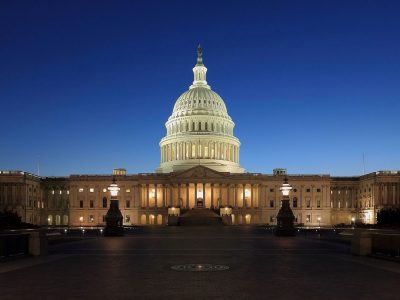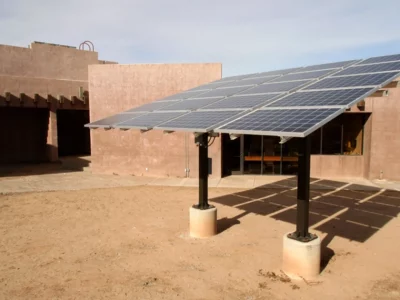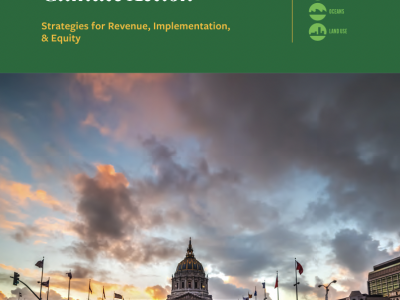Federal Climate Policy
That Was The Year That Was
The Biggest Environmental Stories of 2022
A lot has happened on the environmental front. Here are the biggest stories of 2022. Congress passed the Inflation Reduction Act, providing $369 billion in tax credit and spending to reduce carbon emissions. California banned the sale of new gas cars in 2035, with several other states now agreeing to follow suit. The Democrats lost …
Continue reading “That Was The Year That Was”
CONTINUE READINGClimate Rides the Omnibus
The year-end law gives a boost to climate-related spending
The omnibus spending bill is by no means a “climate law.” Because it spans the entire government, though, it has many provisions relating to climate change. They aren’t dramatic step forward. But the fact that they can pass as part of a bipartisan spending law is a sign of how climate change is slowly becoming …
Continue reading “Climate Rides the Omnibus”
CONTINUE READINGA Great Victory For Electric Cars
But Beware: Neanderthal GOP Judges Are Waiting To Strike It Down
With all the attention being paid to Volodymyr Zelenskyy’s visit to Washington, and the release of the January 6th Committee, you might have missed the (second) most important environmental story of the week: The U.S. Postal Service will buy 66,000 vehicles to build one of the largest electric fleets in the nation, Biden administration officials …
Continue reading “A Great Victory For Electric Cars”
CONTINUE READINGAnother Battle in the ESG Wars
Another Trump rollback undone, another step forward for sustainable investing.
Some call it ESG — the growing attention of big investors to a company’s record Environmental, Social, and Governance issues. Some call it responsible investing. Others call it “woke.” On Nov. 22, the Biden Administration notched a victory in this ongoing battle, allowing ESG investments by private pension plans. Those plans now hold roughly $13 …
Continue reading “Another Battle in the ESG Wars”
CONTINUE READINGWasting Gas
A proposed rule limiting flaring and venting of natural gas is a win for everyone except greedy oil and gas operators.
Yesterday, the Interior Department posted a proposed rule to limit flaring and venting of natural gas on public lands. The rule will be good for everyone except the oil and gas operators who waste the gas, increasing methane and carbon emissions while giving the public nothing in return. The rule is clearly a step in …
Continue reading “Wasting Gas”
CONTINUE READINGClimate Change and Indian Country
The tribes are on the front lines of climate change.
In light of Native American Heritage Day last Friday, we should also be thinking about the future of the tribes in the era of climate change. Tribes face serious challenges from climate change, but also some potential opportunities. In terms of climate impacts, many tribes are at high risk. Tribes are especially vulnerable to climate …
Continue reading “Climate Change and Indian Country”
CONTINUE READINGBeing Thankful for Environmental Progress
Environmentalists do a lot worrying, seasoned by dashes of anger and despair. Here are some things to feel good about instead.
Environmentalists have a tendency to focus on the environmental harm we haven’t been able to prevent and the frustrations of making further progress. Once in a while, though, it’s good to look at the progress we’ve made. Take a few minutes this holiday weekend to be thankful for some of this year’s steps forward on …
Continue reading “Being Thankful for Environmental Progress”
CONTINUE READINGHow Cities Can Optimize Federal and State Funding Opportunities for Local Climate Action
Part Three of CLEE’s analysis for funding and financing municipal climate action
As my colleagues Katie Segal and Ted Lamm have covered here and here, last week our team at CLEE released an analysis detailing how San Francisco can fund its ambitious Climate Action Plan. Katie provided an overview of the city’s Climate Action Plan (CAP), describing how San Francisco will need to secure tens of billions …
CONTINUE READINGAre carbon taxes a thing of the past?
What is the role for carbon pricing in the future of decarbonization policy?
That’s the question implicitly raised by this article in the New York Times from late August. The article surveys a range of criticisms of the use of carbon taxes as a tool to address greenhouse gas emissions, and criticisms of the focus of many economists on carbon taxes as the primary tool to address climate …
Continue reading “Are carbon taxes a thing of the past?”
CONTINUE READINGScenarios and Uncertainty
Imagining different futures can be the best way to think through options when we don’t know the odds.
In environmental law, we’re often operating at the limits of knowledge about the natural world and human behavior. Climate change is well understood in some ways, but it will set off a chain of reactions that we only partly understand. It’s also difficult to predict the future of ecosystems, future energy prices, technological changes, and …
Continue reading “Scenarios and Uncertainty”
CONTINUE READING












